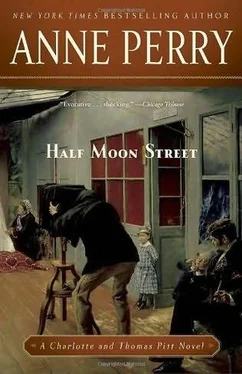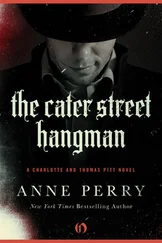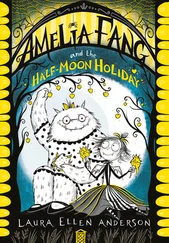Anne Perry - Half Moon Street
Здесь есть возможность читать онлайн «Anne Perry - Half Moon Street» весь текст электронной книги совершенно бесплатно (целиком полную версию без сокращений). В некоторых случаях можно слушать аудио, скачать через торрент в формате fb2 и присутствует краткое содержание. Жанр: Исторический детектив, на английском языке. Описание произведения, (предисловие) а так же отзывы посетителей доступны на портале библиотеки ЛибКат.
- Название:Half Moon Street
- Автор:
- Жанр:
- Год:неизвестен
- ISBN:нет данных
- Рейтинг книги:4 / 5. Голосов: 1
-
Избранное:Добавить в избранное
- Отзывы:
-
Ваша оценка:
- 80
- 1
- 2
- 3
- 4
- 5
Half Moon Street: краткое содержание, описание и аннотация
Предлагаем к чтению аннотацию, описание, краткое содержание или предисловие (зависит от того, что написал сам автор книги «Half Moon Street»). Если вы не нашли необходимую информацию о книге — напишите в комментариях, мы постараемся отыскать её.
Half Moon Street — читать онлайн бесплатно полную книгу (весь текст) целиком
Ниже представлен текст книги, разбитый по страницам. Система сохранения места последней прочитанной страницы, позволяет с удобством читать онлайн бесплатно книгу «Half Moon Street», без необходимости каждый раз заново искать на чём Вы остановились. Поставьте закладку, и сможете в любой момент перейти на страницу, на которой закончили чтение.
Интервал:
Закладка:
The lights dimmed and a hush fell over the auditorium. Everyone straightened up and looked towards the stage.
The curtain rose on a domestic scene in a beautiful withdrawing room. There were half a dozen people present, but the spotlight caught only one of them. The rest seemed drab compared with the almost luminous quality she possessed. She was unusually tall and extremely slender, but there was a grace in her even when motionless. Her fair hair caught the light, and the strong, clean bones of her face were ageless.
She spoke, and the drama began.
Pitt had expected to be entertained, perhaps as much by the occasion as by the play. That was not what happened. He found himself drawn in from the moment he saw Cecily Antrim. There was an emotional vitality in her which conveyed loneliness and a devastating sense of need, so that he ached for her. He became unaware of his own surroundings. For him reality was the withdrawing room on the stage. The people playing out their lives were of intense importance.
The character of Cecily Antrim was married to an older man, upright, honest, but incapable of passion. He loved her, within his own limits, and he was loyal and possessive. Certainly he did not ignore her, and it would have been beyond his comprehension to betray her. Yet he was slowly killing something inside her which, as they watched, was beginning to fight for life.
There was another man, younger, with more fire and imagination, more hunger of the soul. From the time they met their mutual attraction was inevitable. That issue was not what the playwright wished to explore, nor what would occupy the vast majority of the audience. The question was what would each of the characters do about it. The husband, the wife, the young man, his fiancee, her parents, all had fears and beliefs which governed their reactions, inhibitions which distorted the truth they might otherwise have spoken, expectations taught them by their lives and their society. Above all, was there any avenue of escape for the wife, who could not institute divorce, though the husband could have had he wanted?
As Pitt watched he found himself reconsidering his own assumptions about men and women, what each expected of the other and of the happiness marriage might afford-or deny. He had expected passion and fulfillment, and he had found it. Of course there were times of loneliness, misunderstanding, exasperation, but on the whole he could only feel a deep and abiding happiness. But how many others felt the same? Was it something one had the right to expect?
More urgently and far more painfully, had any man the right to expect a woman to conceal and endure his inadequacies as the character on stage demanded of his wife? The audience was intensely aware of her loneliness, of the weight of his inability which was crushing her, but no one else was, except the young lover, and he understood only a part of it. The flame that burned within her was too great for him also. In the end one feared he would be charred by it.
The wife had duties towards the husband, physical duties on the rare occasions he wished, duties of obedience, tact, domestic responsibility, and the need always to behave with discretion and decorum.
Legally he had no such duties toward her-what about morally? Unquestionably he had to provide her with a home, to be sober and honest and to take his pleasures, whatever they might be, with a corresponding discretion. But had he a duty of physical passion? Or was the need for it unbecoming in a decent woman? If he had given her children, should that be enough?
Cecily Antrim, in every movement of her body, inflection of her voice, showed that it was not enough. She was dying of an inner loneliness which consumed her being. Was she unreasonable, overdemanding, selfish, even indecent? Or was she only voicing what a million other silent women might feel?
It was a disquieting thought. As the curtains drew closed and the lights blazed up again, Pitt turned to look at Caroline.
Caroline herself was as deeply disturbed by the first act of the play as Pitt had been, but in different ways. It was not the questions of hunger and loyalty which disturbed her most, at least it was not the answer to them; it was the fact that they should be raised at all. Such matters were intensely private. They were the thoughts one had alone, in darker moments of confusion and self-doubt, and dismissed when common sense prevailed.
She did not even look across at Joshua, embarrassed to meet his eyes. Nor did she wish to look at Pitt. In showing her emotions so nakedly on the stage, Cecily Antrim had, in a very real sense, stripped the decent clothes of modesty and silence from all women. Caroline could not forgive her easily for that.
“Brilliant!” Joshua’s voice came softly beside her. “I’ve never seen anyone else who could combine such a delicacy of touch with such power of feeling. Don’t you think so?”
Caroline felt the movement as he looked towards her.
“She is extraordinary,” she answered with honesty. She never doubted for an instant that he was referring to Cecily Antrim. No one in the entire theatre would have needed assurance on that. She hoped her voice had not sounded as cool as she felt. He had made no secret of how profoundly he admired Cecily. Caroline wondered now if the regard was personal as well as professional. It brushed by her with a coldness she preferred to dismiss.
“I knew you would love her,” Joshua went on. “She has a moral courage which is almost unique. Nothing deters her from fighting for her beliefs.”
Caroline made herself smile. She refused to ask what those beliefs were. After watching the first act of the play, she greatly preferred not to know.
“You are quite right,” she said with as much enthusiasm as she could manage. She was no actress at all. “I always admire courage. . more than almost any other quality. . except perhaps kindness.”
Joshua’s reply was cut short by a knock at the door of the box. He stood up to reply, and a moment later a man in his late forties came in, tall and slim with a mild, rather austere face. The woman beside him was almost beautiful. Her features were regular, her eyes wide, deep-set and very blue. There was perhaps a lack of humor in her which robbed her of the final magic.
They were a Mr. and Mrs. Marchand. Caroline had known them for over a year and enjoyed their company on many occasions. She was pleased they had called. Without question they would feel as she did regarding the play. In fact, she was surprised they had come to see it. Like her, they could not have known its content.
Their first remarks after being introduced to Pitt proved her correct.
“Extraordinary!” Ralph Marchand said quietly, his face reflecting his puzzlement. He avoided Caroline’s eyes, as if he had not yet overcome his embarrassment at the subject and could not easily discuss it in a woman’s company.
Joshua offered Mrs. Marchand his seat, and she accepted it, thanking him.
“Remarkable woman,” Mr. Marchand went on, obviously referring to Cecily Antrim. “I realize, of course, that she is merely acting what the playwright has written, but I am sorry a woman of such talent should lend herself to this. And frankly I am surprised that the Lord Chamberlain permitted it a license to be performed!”
Joshua leaned gracefully against the wall near the edge of the red, plush-padded balcony, his hands in his pockets. “Actually I should be very surprised if she didn’t have considerable sympathy with the character,” he replied. “I think it was a part she chose to play.”
Mr. Marchand looked surprised and, Caroline thought, also disappointed.
“Really? Oh. .”
“I cannot understand the Lord Chamberlain either,” Mrs. Marchand said sadly, her blue eyes very wide. “He is lacking in his duties that he has not exercised his power to censor it. He is supposed to be there for our protection. That, after all, is his purpose, isn’t it?”
Читать дальшеИнтервал:
Закладка:
Похожие книги на «Half Moon Street»
Представляем Вашему вниманию похожие книги на «Half Moon Street» списком для выбора. Мы отобрали схожую по названию и смыслу литературу в надежде предоставить читателям больше вариантов отыскать новые, интересные, ещё непрочитанные произведения.
Обсуждение, отзывы о книге «Half Moon Street» и просто собственные мнения читателей. Оставьте ваши комментарии, напишите, что Вы думаете о произведении, его смысле или главных героях. Укажите что конкретно понравилось, а что нет, и почему Вы так считаете.












